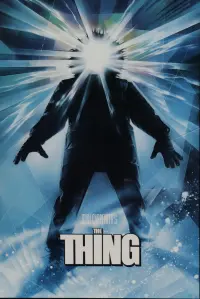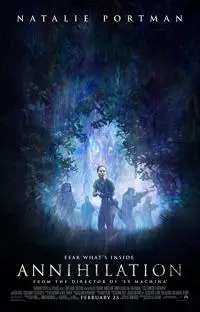They say a picture is worth a thousand words, so what can you possibly absorb from watching television and motion pictures? A lot, I tell you. Stephen King says that in order to write, you must read. And I agree 100%. It’s a great way to study plot, story, voice, setting, structure and so many other things. But I also feel film can help you as an author see things you never could in the real world. Help you safely experience intense moments, and fill your head with imagery and knowledge as you get ready to write a new short story, novella, or novel. I just went through this writing “Ring of Fire.” So let’s talk about that, and how film helped me make this story work.
I was approached to be in an anthology entitled, The Seven Deadliest. Yes, it was about the seven deadly sins. I said yes to this novelette-length request. When I was assigned lust, I knew that I’d have to dig deep to make this work. One of the hurdles was I didn’t want to regurgitate the pain and pleasure mix that Clive Barker created with Hellraiser. I love that film—it’s intense, weird, funny, sexy, and dark. So, I revisited it, and that made me realize I wanted to do something very different. But the imagery in that movie has stayed with me. What next?
 I was blocked on the story for quite a while—months. Nothing I wrote was working, so I decided to tap into motion pictures that inspired me, scared me, and made me think. I hoped that the imagery, tone, and originality might shake something loose.
I was blocked on the story for quite a while—months. Nothing I wrote was working, so I decided to tap into motion pictures that inspired me, scared me, and made me think. I hoped that the imagery, tone, and originality might shake something loose.
And it did.
I didn’t want this story to have a whiff of misogyny or feel rapey, so I revisited some movies that did exactly that. I watched Requiem for a Dream and Last Exit to Brooklyn, and then had to move on. I took a shower and watched some Adventure Time to cleanse my palette. I still haven’t been able to watch Irreversible. But those films gave me the darkness I needed so I could avoid it.
Beyond that I wanted a certain flavor for this story. It was going to get weird, with three threads running through it. First, there was the disembodied voices of two entities that are never tagged, never explained, tossing out the idea that they may be scientists, co-workers, aliens, spirits, demons—who knows? Second, there is a running list of items that aren’t explained, but if you pay attention, they can help shine some light on the narrative. There are clues buried in there. Third, is the main POV—a man isolated in an icy wasteland, far from civilization, bringing up core samples from deep within the earth, worth hundreds of thousands of dollars an ounce. Very rare. He is visited by a woman, monthly, and as he spends so much time alone, he starts to notice things, starts to freak out.
If you want to write an isolation story set in a frozen tundra you might watch films like The Thing or Let the Right One In, as I did. If you want more of that isolation, weirdness, and slippery reality you might watch Moon or The Machinist, as I did. (And I did some reading, too, revisiting Brian Evenson’s The Warren.) It helped me come at the story from a different direction, tapping into both the solitude and the unreliable narrator. I also watched The Witch again (a favorite recent film). This film deals with some themes of isolation, but also other elements I wanted to tap into—good vs. evil, how people change, perception vs. reality, blame and guilt, religion, etc.
What else?
I knew there would be a science fiction feel to this story, paired with the horror, so I revisited some of my favorites—movies like Under the Skin, and Ex Machina. I paid attention to the mood, the way they eased technology into the story, and the way each movie held back secrets. The music, the silence, the internal thought—all resonated.
 I also knew that I wanted to have an unreliable narrator, and deception. There would be a general weirdness to this story that tapped into the balance between science and paranoia that I loved in Annihilation. So I watched other movies such as Enemy, to see how it handled the various realities and truths in that film. The Machinist already ticked a box for isolation, but it would also go in this category, unreliable all the way up to the end.
I also knew that I wanted to have an unreliable narrator, and deception. There would be a general weirdness to this story that tapped into the balance between science and paranoia that I loved in Annihilation. So I watched other movies such as Enemy, to see how it handled the various realities and truths in that film. The Machinist already ticked a box for isolation, but it would also go in this category, unreliable all the way up to the end.
I watched movies I’d never seen before, movies that were on the top of my “to watch” list, just trying to fill my head with new ideas and images—such as The Neon Demon, The Blackcoat’s Daughter, Killing a Sacred Deer, and The Lobster. Each of these films works hard to be innovative, taking a unique approach to storytelling, keeping us on our toes throughout the entire production.
What you have to understand is that this took place over MONTHS. I was truly struggling. This was one of the hardest stories I’ve ever written. I would write a scene, then back off of it, then rewrite it to be less horrific, then push forward, then back up again, delete, rewrite, etc.. It was a delicate balance. So for a very long time, before I even got started, I filled my head with images, as well as sounds, and what I thought the other senses might provide to the story—touch, taste, and smell.
I’ve never felt that I would steal words when reading literature by various authors. It’s just not possible unless you are LITERALLY copying them down, verbatim. I love Stephen King and Chuck Palahniuk, for example, but I sound nothing like them. So with movies, I feel like it’s even LESS likely that I will “steal” something from what’s unfurling on the screen. What I get are big brush strokes, creeping sensations, broad ideas, backgrounds, settings, feelings, and emotions. I took PAGES of notes, jotting down everything from plot points to lines that really made me think to interesting sensory details. But when I sat down to write, I closed the notebook, and then made this story my own.
“Ring of Fire” is getting some love at places like Cemetery Dance, Kevin Lucia saying, “…[it] is by far my favorite story in this collection and, in my opinion, the most skillfully rendered.” But when I was done, I bounced it off three beta-readers—some saying it was good, some saying it was great. I still wasn’t sure if it was good ENOUGH when I turned it into my editors. In the end, they loved it, which was a great relief. Looking at it now, I think it’s some of the best work I’ve ever done. But it wasn’t easy. If you get stuck, or are looking for inspiration, try seeing what a good movie (or twelve) can shake loose. Good luck!
Get The Seven Deadliest at Amazon

About the author
Richard Thomas is the award-winning author of seven books: three novels—Disintegration and Breaker (Penguin Random House Alibi), as well as Transubstantiate (Otherworld Publications); three short story collections—Staring into the Abyss (Kraken Press), Herniated Roots (Snubnose Press), and Tribulations (Cemetery Dance); and one novella in The Soul Standard (Dzanc Books). With over 140 stories published, his credits include The Best Horror of the Year (Volume Eleven), Cemetery Dance (twice), Behold!: Oddities, Curiosities and Undefinable Wonders (Bram Stoker winner), PANK, storySouth, Gargoyle, Weird Fiction Review, Midwestern Gothic, Gutted: Beautiful Horror Stories, Qualia Nous, Chiral Mad (numbers 2-4), and Shivers VI (with Stephen King and Peter Straub). He has won contests at ChiZine and One Buck Horror, has received five Pushcart Prize nominations, and has been long-listed for Best Horror of the Year six times. He was also the editor of four anthologies: The New Black and Exigencies (Dark House Press), The Lineup: 20 Provocative Women Writers (Black Lawrence Press) and Burnt Tongues (Medallion Press) with Chuck Palahniuk. He has been nominated for the Bram Stoker, Shirley Jackson, and Thriller awards. In his spare time he is a columnist at Lit Reactor and Editor-in-Chief at Gamut Magazine. His agent is Paula Munier at Talcott Notch. For more information visit www.whatdoesnotkillme.com.








